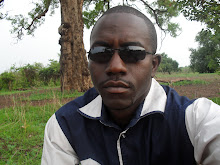
The invitation to moderate a programme held at the Joint Officer’s mess in Kotu last Friday by the Youth Ambassadors of Peace as part of worldwide celebrations of Global ceasefire day, or simply put International Day of peace did not come as a surprise. It was originally meant for my senior man who was ‘too busy’ to take part in the programme, so he asked me if I was interested to step in.
It was the second time I entered the hall, actually the first one was some two years ago, when I went there to receive an award from the National Youth Council as the youth friendly presenter of the year.
So my second visit offered me a unique opportunity to come face to face with the audience, talking to them intermittently, I understand more than anything else that the body language of the participants as the main speaker of the day Dr. Abubakar Senghore of the University of The Gambia presented his topic: The role of Islam in Peace Building given that some people think Islam is synonymous with terrorism.
The striking part of the Dr. Senghore’s lengthy presentation was on discrimination, something that is always an issue in many societies. Giving an interesting scenario of two kids, Dr. Senghore explained that he presented two coins, fifty bututs to one chap. And presented a single coin of a dalasi to another chap. The first chap cried foul, protesting that he deserved two coins not knowing that the two coins he saw his colleagues carrying was just a dalasi – [ two fifty bututs]
Actually, he did this deliberately to see how these children will react, elaborating that no one would like to be discriminated against under any circumstances. The participants like the presentation, so there were no shortages of questions. And a drama performance by the peace lovers further highlighted how a war survivor came to understand the realities of the day.















